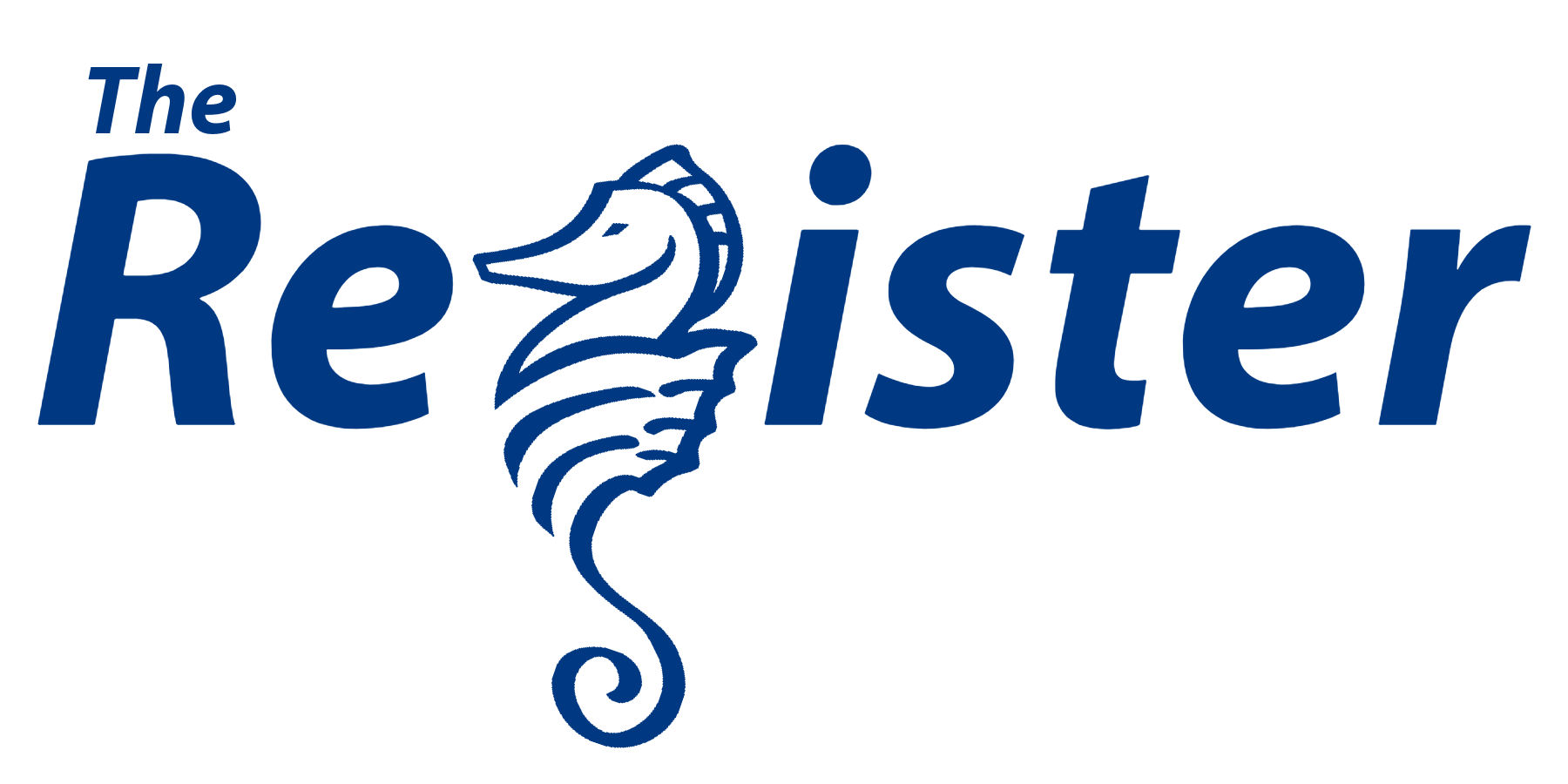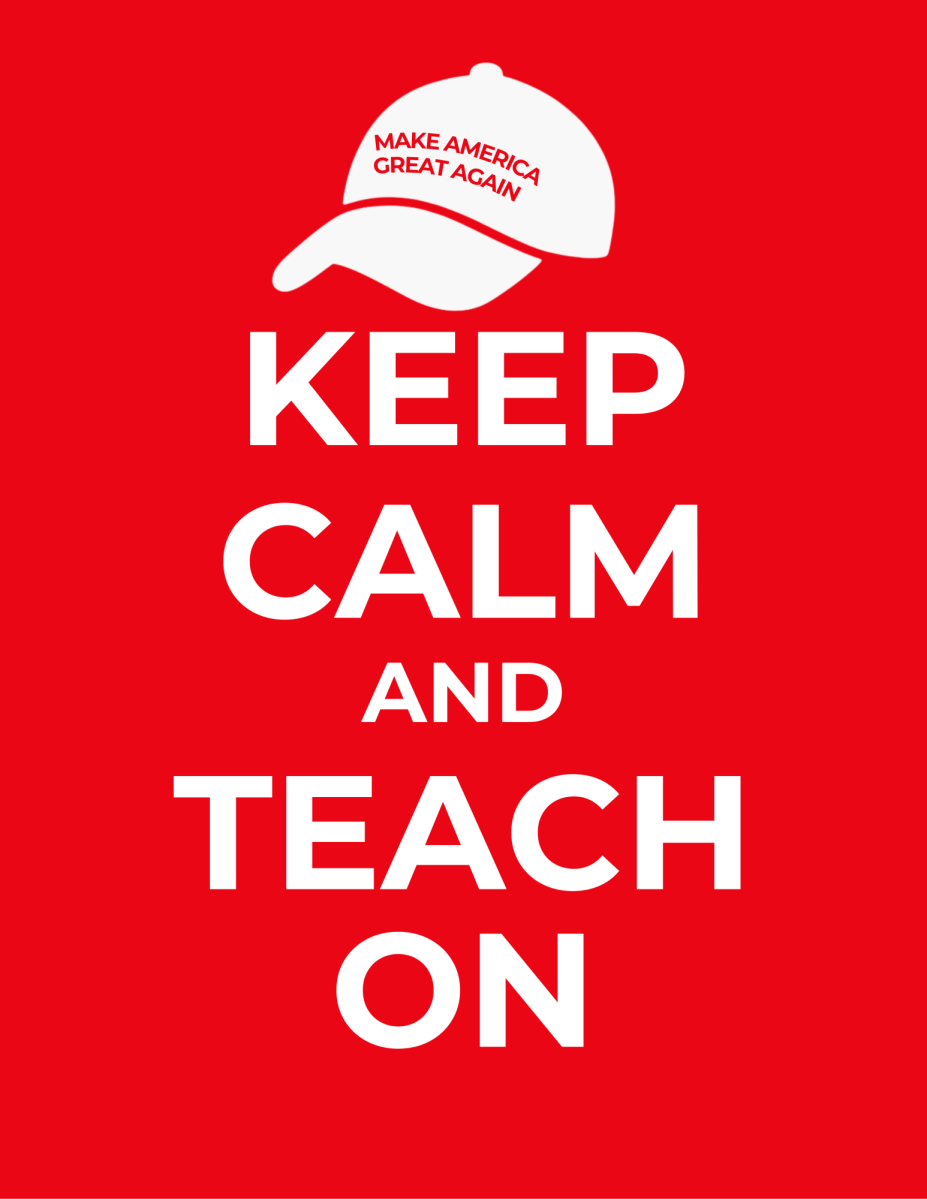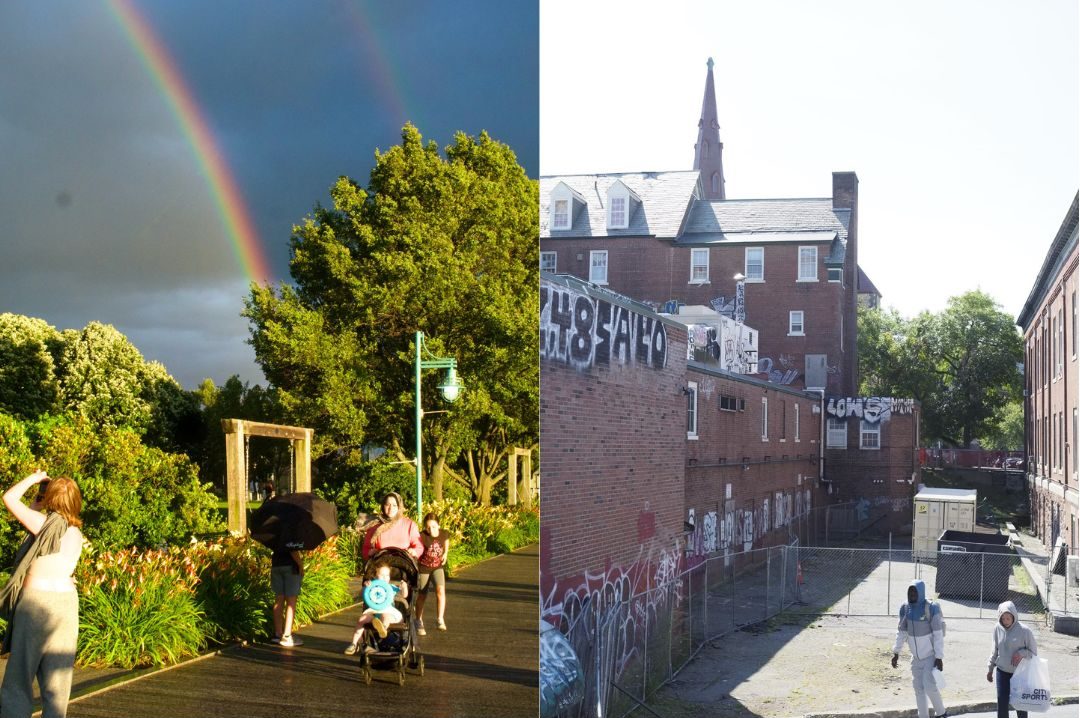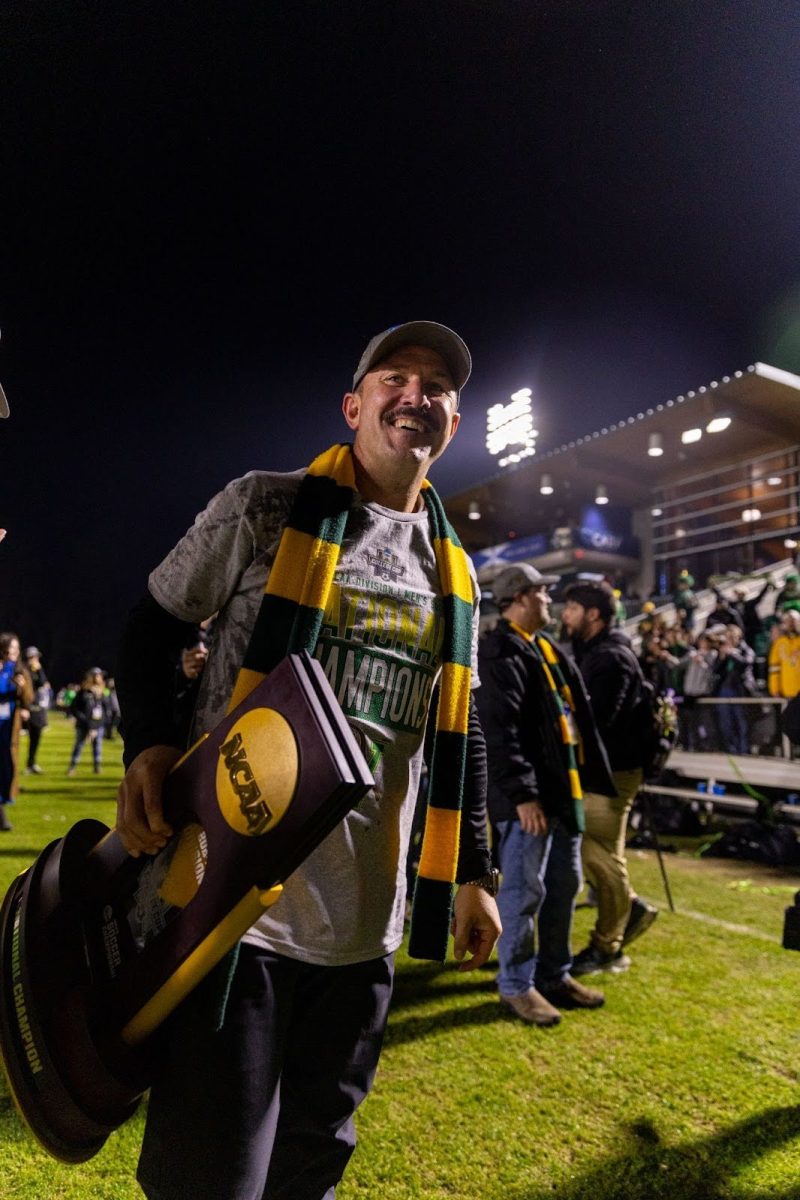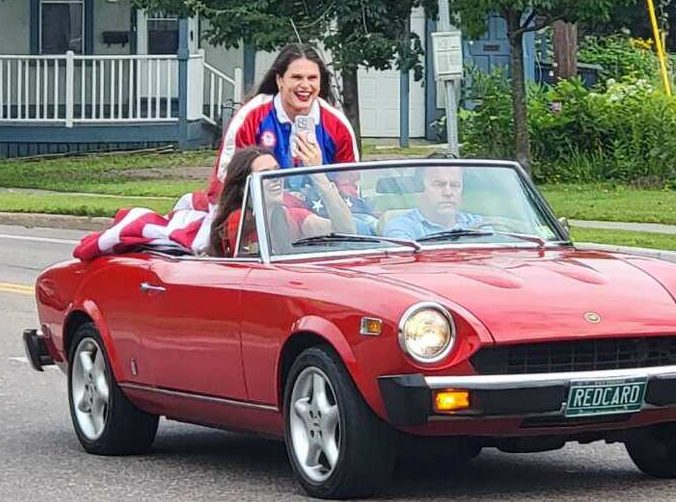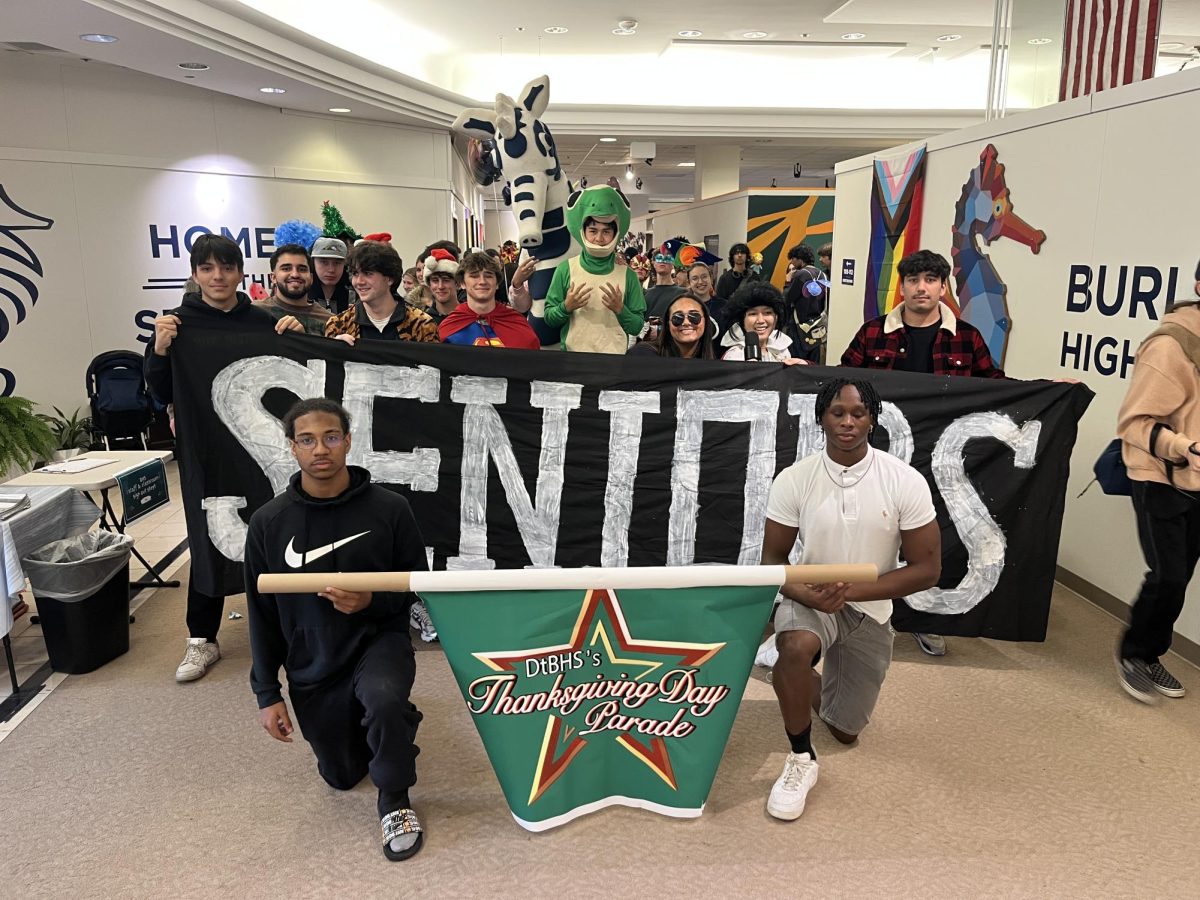On the eve of November 5, a shockingly fast election result turnaround announced that Donald J. Trump would be the 47th president of the United States.
Leading up to the election, numerous polls predicted a more even spread of voters than the results.
“So I think I was definitely a little bit shocked, because I was fully expecting Kamala to get more votes than she did,” Lisa Zhou-Hackett ‘26 said. “But I was also really sad, because I knew what it meant for our country.”
Ruby Fox ‘26 stayed up late because she was stressed out, constantly refreshing results. She now does not feel optimistic about the next few years.
“His campaign was openly misogynistic, fascist, racist, [and] sexist. The fact that still so many people voted for him… he’s a rapist and a felon, and people are still not caring? It just kind of makes you doubt the American people,” Fox said.
Barwaaqo Sugow ‘26 said she is more in tune with politics and more knowledgeable about the candidates than she was in 2016 or 2020. Though she doesn’t feel strong anxiety regarding the election, the aftermath certainly scares her.
“I know the dangers of what he could do and the power he has… like not letting immigrants in. I have family outside of the United States,” Sugow said. “There’s my aunt and her son. They were supposed to come to Nebraska this year or next year. I don’t know, that’s [kind of] anxiety inducing.”
For Sugow, the biggest factor was the conflict in Gaza, and a President’s administration handling of war. Since neither candidate showed strong advocacy in this area, Sugow became less invested.
Nahum Ahmed ‘25 expressed his biggest concerns – most of Donald Trump’s policies. Trump has expressed plans Ahmed disagrees with, especially concerning mass deportation, the Department of Education, and the Affordable Care Act.
“I don’t have any prospects that what he’s going to do is any good. I think reproductive rights – that is a very big one… I don’t believe Donald Trump when he says he will keep that up to the states,” Ahmed said.
Though he wasn’t happy about the outcome, Ahmed wasn’t a fan of Harris’s inconsistency. Her stance on climate change seemed to flip flop, he said.
Scott Hubbard shared his perspective as a math teacher.
“[Students] were asking me, ‘Was I happy with the election result?’ And I said, ‘I’m not sure I’m happy with either candidate, but the one I voted for, won,’” Hubbard said. “I’m a fiscal conservative, and like 40 to 45% of Americans who vote, that’s their major issue, everything else is a distant second.”
Hubbard doesn’t describe himself as Republican or Democrat, but more as a Libertarian.
“I don’t particularly like the candidate as a person, but you have to look past that,” Hubbard said. “[Some people think] if you vote Republican, you’re automatically racist or homophobic. [I do have] compassion for social issues people are dealing with.”
Hubbard went on to say he speculates political polarization from the Left is why the Republican party won. Hubbard ultimately thinks local politics is more relevant and more important for students to be educated on regardless – positions like school board members and city council members are the ones that will affect students day to day.
History teacher Sean Fleming says he has family on both sides of the political spectrum, like a sister-in-law who is a high risk prenatal doctor, dealing directly with abortions.

Fleming has friends who, and assumed students, have legitimate concerns about Trump’s rhetoric. He thought it was important to address the election with his students.
“So often in the classroom, it’s just business as usual. Teachers come in as adults, and they put on their business face, and we expect students to do the same, but I think there are moments that we have to recognize the humanity,” Fleming said. “Behind the student is an individual and it’s important to connect that way sometimes, because there are a lot of big feelings. I just felt it would be disingenuous to not speak about [the election].”
Regardless of his involvement though, Fleming wanted to make sure he could speak to everyone; he had tried to speak as universally as he could.
“No regime lasts forever in the United States. Keep calm and carry on, continue doing your civic duty,” Fleming said. “I felt like my message was pretty universal, rather than partisan. But I do want to be careful, because I don’t know the political persuasion of everybody in the classroom, and I don’t want to alienate anybody by interjecting my politics.”
He added that a democratic country has to accept when it loses, and there will be another chance in four years.
Ella Jeffers ‘25 said she thought Fleming handled it well. He had acknowledged the election results and continued with the lecture in class.
“Obviously, emotions were pretty high – and I think he did a good job of being like ‘oh don’t freak out too much,'” Jeffers said.
She went on to say that multiple classes offered spaces to come talk if needed. She is glad this was the approach, instead of pretending it didn’t happen.
“I think it’s kind of funny that a lot of teachers were trying to be impartial. There’s an overwhelming, predominant opinion about the election, of “oh damn, this sucks,” Ahmed said.
Brian Mutar ‘28 was somewhat disappointed in the results as well. His teachers combined his last two blocks of the day to talk about the election.
“It was factual to a point. But they did say, if you needed someone to talk to…if you feel scared, uncomfortable to walk the streets and you feel like that, like your family’s in danger, that there’s people to talk to, and to not be scared,” Mutar said.
Some teachers mentioned in class how different this felt to the first time Trump was elected to office. Fleming said it felt like less of a shock, and made reference to students crying in the hallways, sharing hugs.
An email from Tom Flanagan made no endorsement or statement on the election, but it mentioned the high level of real fear he has heard about, both in middle and elementary schools. Flanagan reaffirmed the mantra “hate has no home here” and provided two resources to guide classrooms in their election conversations.
Zhou-Hackett thought these conversations were somewhat important to have, but teachers should have more focus on student’s feelings.
“School is not a designated space to talk about politics. People have so many different opinions. I know a lot of other people wouldn’t agree with every single teacher,” Zhou-Hackett said. “I feel like focusing more on how the students feel about the election, without going into [depth is appropriate].”
Hubbard thought a more factual route when approaching these conversations is how the election should be addressed.
“These are just kids who don’t have all the information yet, and to get them excited about results of presidential politics is, it’s just not a positive thing in my mind,” Hubbard said. “It’s your role as a teacher in those areas to give unbiased factual knowledge to kids and let them make their own decisions. But if there are kids who are legitimately concerned, you do have a role in talking to them about their concerns and listening, but trying the best you can to listen to all voices.”
Hubbard said it’s different for a math teacher as opposed to a social studies teacher. Since he isn’t teaching the facts, he says he will share his thoughts when asked. However, he did say that a blanket statement to a class about presidential politics is not the best way to go.
“I think they’re making a lot of assumptions,” Hubbard said. “I’m not saying that there aren’t students who have concerns. I’m not judging those teachers. I think in their heart of hearts, they’re doing what they think is correct or helpful.”
Both teachers thought it was a teacher’s job to look out for students. Regardless of their personal politics, these teachers believe biased teaching is not something that should be spread, and conversation and education should be encouraged.
Read more on election preparation across different schools- and how they are teaching about the election here:
